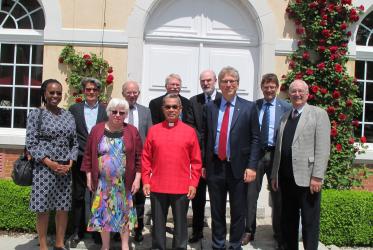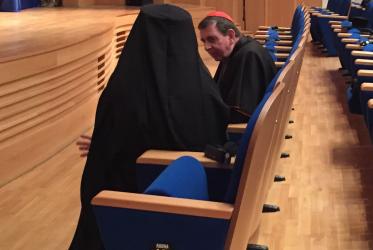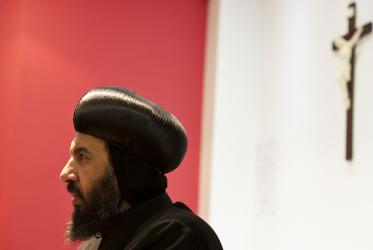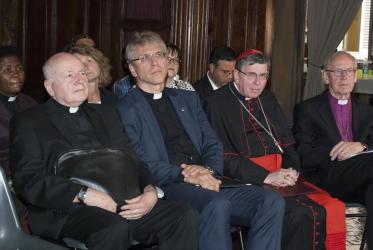Displaying 101 - 120 of 145
Ecumenical Patriarch visits WCC
24 April 2017
In Lebanon, refugees face hardship - but find hope
16 March 2017
Winners of WCC photo contest announced
09 May 2016
Panel discussion fields ideas on European identity
26 April 2016
Catholic-WCC group pursues new mandate
13 April 2016
Global Christian leaders concerned for persecuted Christians
09 November 2015
Cardinal Kurt Koch tells WCC News: We have to deepen our solidarity
05 November 2015
Pilgrimage of justice and peace gives vision for WCC programmes
22 November 2014













